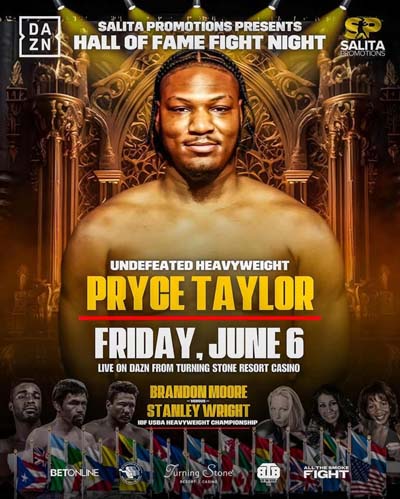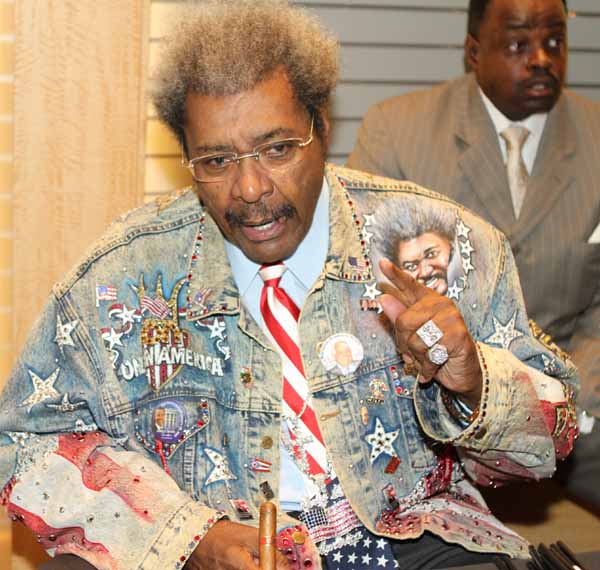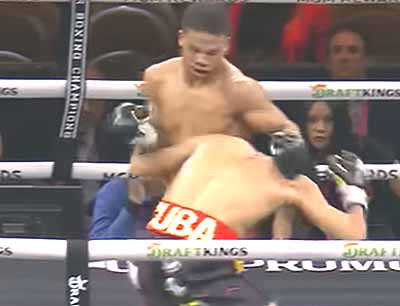The first fight was the best, probably the best of this generation. The return bout wasn’t quite as great, it couldn’t have been, there’s never more than one Taj Mahal. The third fight was the least of the three, but will probably be better than 90% of the boxing matches we’ll see in the next five years. When Arturo Gatti and Mickey Ward finished the last round of their ten round segment of thirty rounds of boxing on Saturday night in Atlantic City, they stopped punching for the first time in thirty minutes of ring savagery. They then stood in the middle of the ring, forehead to forehead and muttered words to each other that only they were privy to, words that, in a true sense, only they should have been privy to.
There was no prancing around the ring, no jumping on the ring ropes, there was simply the mutual respect of each fighter for the other. It was just one more element that made this wonderful boxing trilogy such a great sporting moment.
For it was only these two fighters, one from mean streets of Jersey City NJ, within sight of, but light years removed from, the New York skyline; and the other, Ward, from the hardscrabble mill town of Lowell MA, who truly understood what they had accomplished, what they had given to their sport and the millions of fans privileged to watch their ninety minutes of boxing. It was boxing that harkened to another, long gone era. An era in which proud moments such as these were much more common to the sport.
As such, Saturday’s ten round bout deserved so much more. It deserved Johnny Addie, the elegant, banty ring announcer who graced the squared circle of Madison Square Garden. It deserved to be described by Don Dunphy, who fully understood that when he was doing boxing broadcasts in the forties and early fifties, his primary purpose was to describe the action in the ring and to do it with as little intrusion on the real attractions, the fighters, a possible. Instead, in a paraphrase of Colonel Kurtz’s “Apocalypse Now” words, we got “mail clerks sent by the Generals of television”.
Jim Lampley is a workman-like announcer, but the majesty of Gatti/Ward deserved poetry not pedantry. The question on Saturday was how long would it take Lampley to utter that well-worn sports announcing cliché, “this is what boxing is all about”. The answer, of course, was it didn’t take long at all. It should be noted that while Lampley did not wait long to utter this phrase, he, mercifully, did not wear it out during the evening. My question is “how would he know” “what boxing is all about” since I’m fairly certain Lampley’s first hand boxing experience has been, mostly, limited to sitting at ringside in front of a monitor. It somehow reminded me, incongruously, of the 1991 movie “Boyz in the Hood”. I recall listening to a review of that film by one Pia Lindstrom, on a local TV station in New York. Lindstrom was Ingrid Bergman’s daughter and had grown up in Sweden and in privilege in New York. In her review, Lindstrom remarked that “Boyz in the Hood” was a “very realistic view of life in a Los Angeles ghetto”. I’d make a guess that Jim Lampley’s view of “what boxing is all about” is akin to Lindstrom’s familiarity with ghetto life in Los Angeles.
Then there was the ubiquitous, dulcet-toned, ring announcer Michael Buffer. One of the transgressions Buffer will surely have to explain in the hereafter is the fact that his emergence as a “ring MC” has led us, inevitably, to the likes of Amy Hayes. We witnessed Buffer on Saturday night, breathlessly intoning that Gatti, by winning the “rubber” match of this wonderful trilogy, was the winner of the “blood and sweat championship”. Buffer would have done well to save such triteness for his next “gig” on a Vince McMahon extravaganza. In the presence of greatness, succinctness is often the best course.
Thus, since it couldn’t be Don Dunphy and Johnny Addie, we can at least send Arturo Gatti and Mickey Ward off with one of the highest accolades that can be accorded a fighter. Lets agree that Gatti and Ward are the quintessential examples of an “honest” fighter. This fully attests to a boxer who comes to the ring ready to fight every minute of every round and leaves nothing there at the end of the bout. It is praise that seldom seems inadequate, but in the case of Arturo Gatti and Mickey Ward, such adulation may, indeed, come up a bit short. Certainly Gatti and Ward are “honest” fighters, but maybe, in a grander sense, each should be accorded “Abe Lincoln” status as far as the quality of an “honest fighter” goes. One thing is certain, it will be a long while before we see their likes together in the ring again. Bernie McCoy



